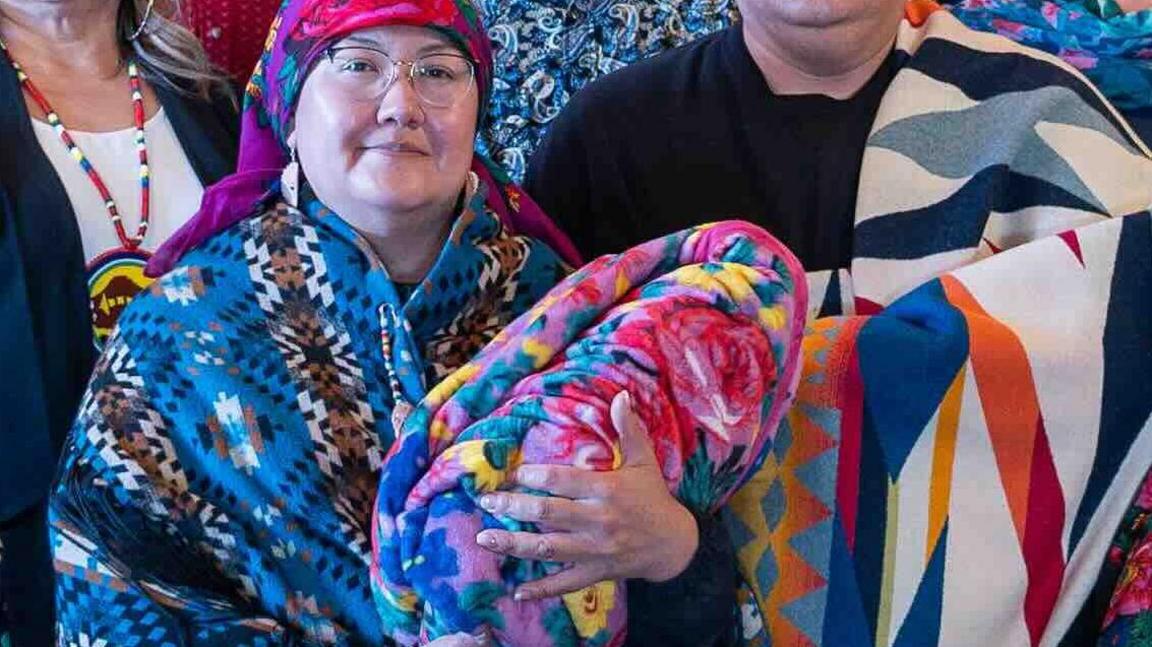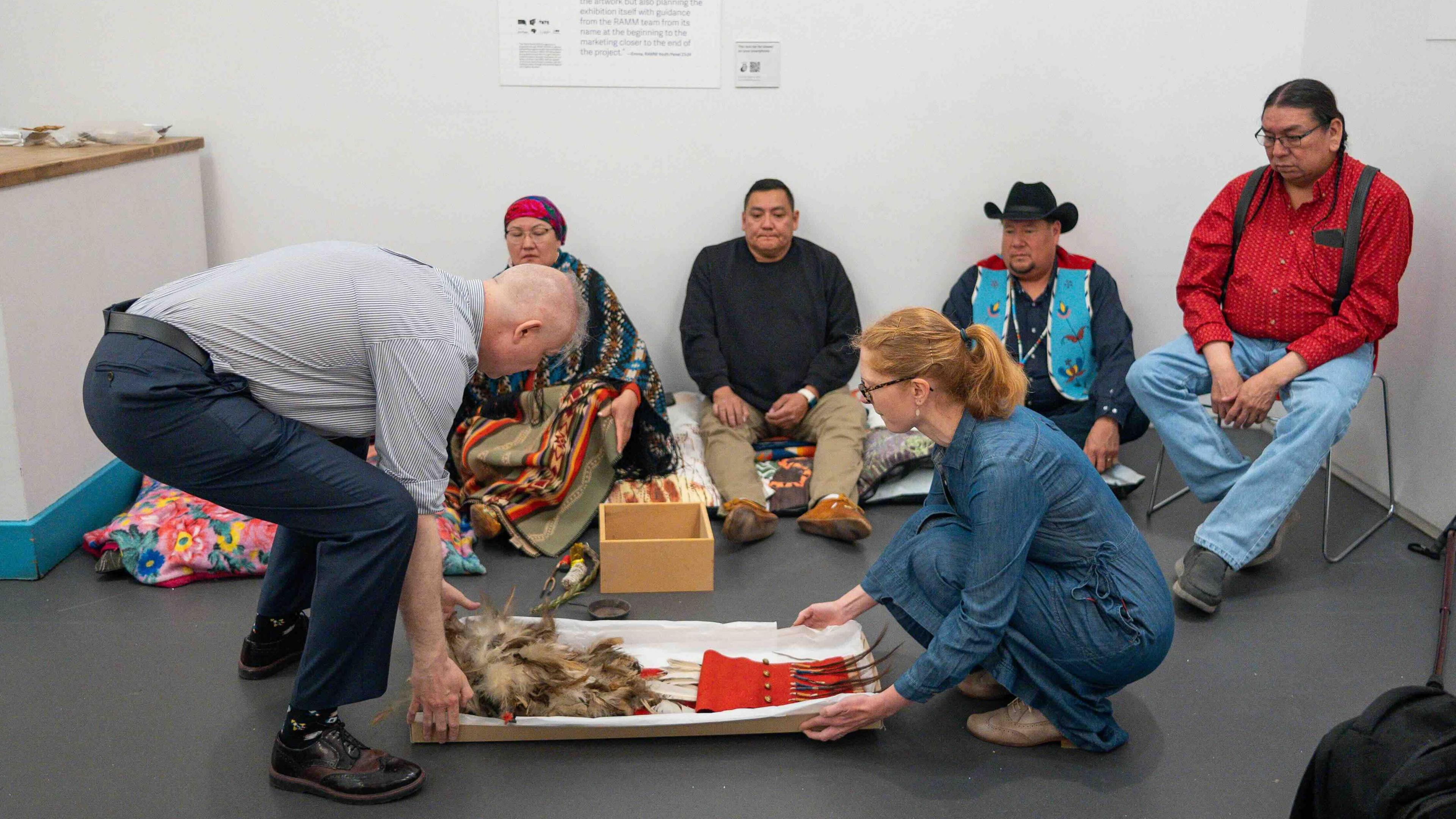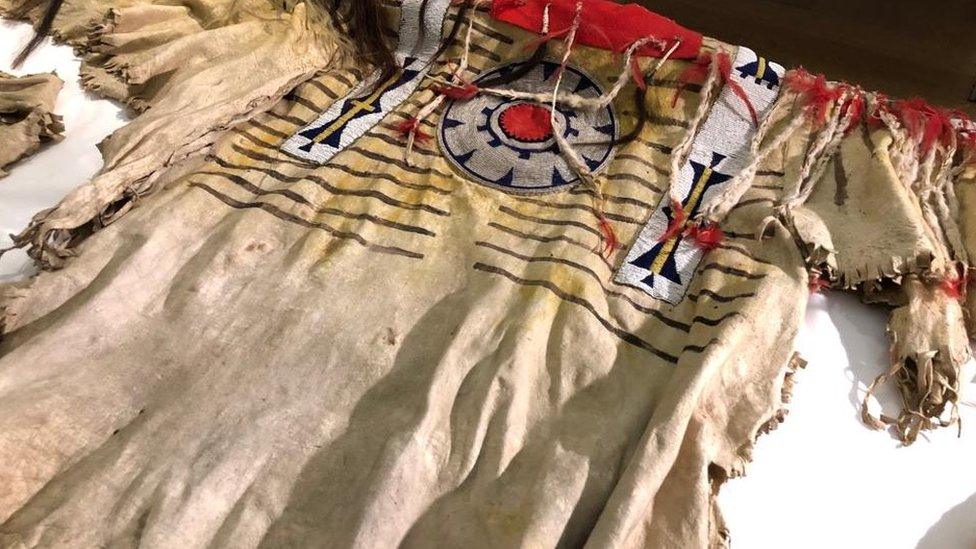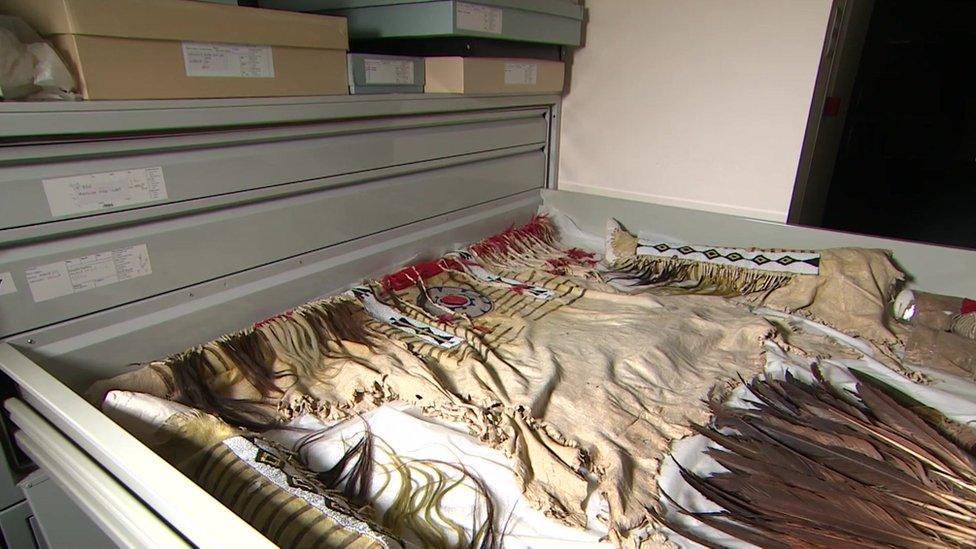Sacred headdress handed over to Siksika Nation

Siksika Nation representative Joset Melting Tallow with a bundle containing the headdress
- Published
A delegation from the Siksika Nation in Canada has taken possession of a headdress in a handover event in Exeter.
The ceremonial headdress has been held at the Royal Albert Memorial Museum & Art Gallery (RAMM) since 1920, when it was given to the museum by Edgar Dewdney, a Lieutenant Governor of the Northwest Territories.
The woman’s headdress, crafted with buffalo horns, sacred bird feathers, porcupine quills, and adorned with red cloth and brass bells, was handed to Siksika Nation representatives at the museum.
It follows the repatriation from the museum of Chief Crowfoot’s regalia in 2022.

Museum staff present the sacred bundle
The museum said although the exact means of acquisition of the headdress was undocumented, it was likely acquired through the enforcement of colonial assimilation policy.
Joset Melting Tallow, of the Siksika Nation said: "The ceremonial Buffalo Woman’s Headdress holds immense sacred significance to the Blackfoot people.
"Its return to Siksika Nation symbolises not only the preservation of our cultural heritage, but also the recognition of our history and traditions, and is a profound testament to our ancestors’ spiritual and cultural practices.
"We are grateful to the Royal Albert Memorial Museum for their commitment to honouring and respecting the sacredness of this headdress by facilitating its repatriation."
Julien Parsons, RAMM’s collections and content manager, said: "The return of the ceremonial bird bundle represents a significant moment in the museum’s history and our relationship with the Siksika.
"Over a century after the headdress came to RAMM, we are pleased that it will be used once more for its original purpose."
Follow BBC Devon on X (formerly Twitter), external, Facebook, external and Instagram, external. Send your story ideas to spotlight@bbc.co.uk, external.
Related topics
Related stories
- Published19 May 2022

- Published8 April 2020
